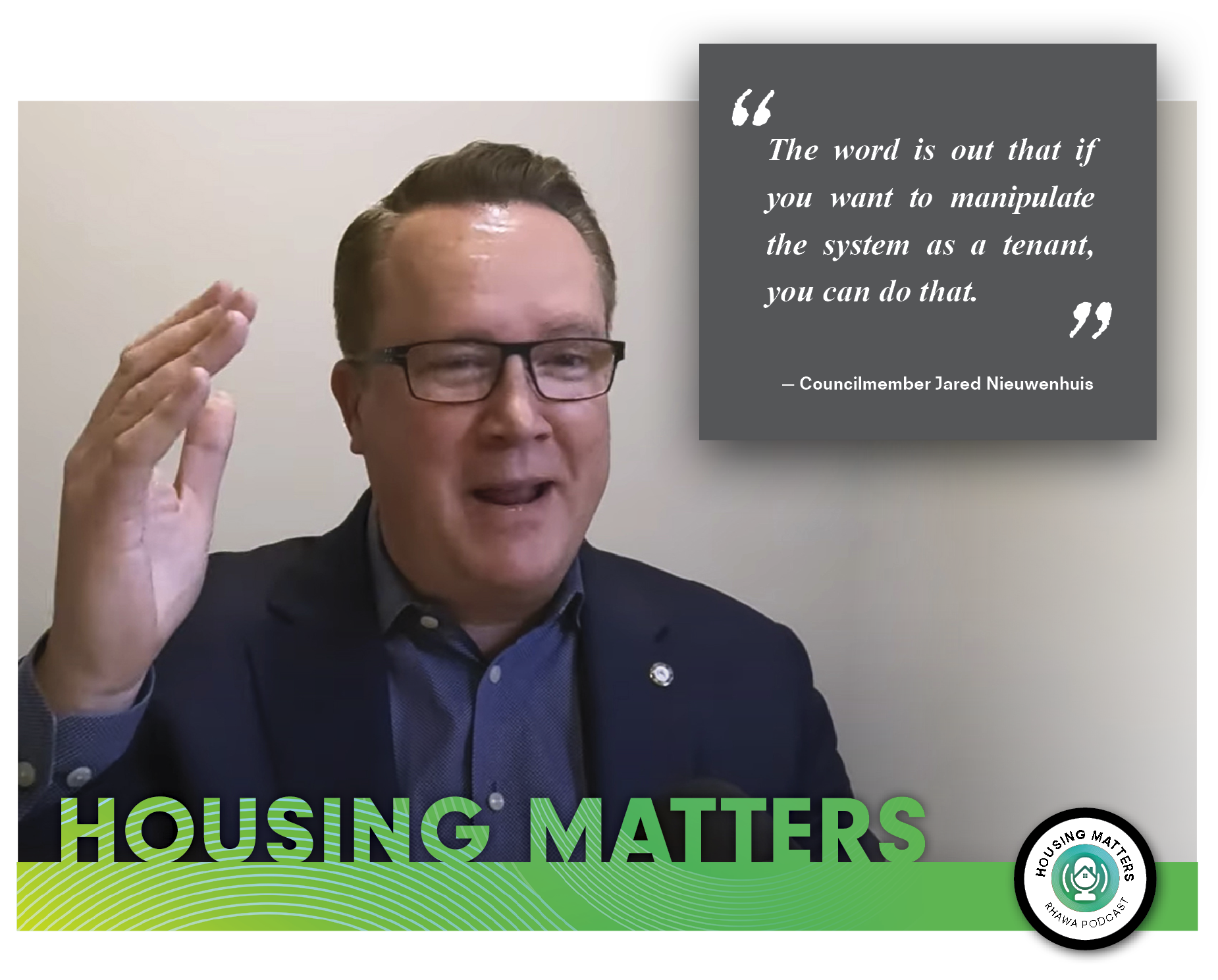Bellevue Plans for Future Housing
 As the state winds down from the frenzy that was the 2024 Legislative Session in Olympia, we move our eyes to more local jurisdictions for the remainder of 2024. True, lawmakers and the bills proposed and passed in Olympia may be finished, but now is the pivot to what councils and officials are doing at the county and local city level.
As the state winds down from the frenzy that was the 2024 Legislative Session in Olympia, we move our eyes to more local jurisdictions for the remainder of 2024. True, lawmakers and the bills proposed and passed in Olympia may be finished, but now is the pivot to what councils and officials are doing at the county and local city level.
I recently had the pleasure of speaking with Bellevue City Councilmember Jared Nieuwenhuis for the RHAWA podcast, Housing Matters. We spoke at length about the future of housing and development in Bellevue, but also how Bellevue has worked to shore up the supply of housing available during a nationwide shortage.
“Bellevue’s not immune to the pressures of the housing crisis that we see all over the state. You know the city certainly is very committed to expanding the amount of housing options for individuals. Either current residents or future residents in our city,” Nieuwenhuis said. “That includes affordable rental properties, that includes you know opportunities for ownership, that’s workforce housing, you know that’s family size units as well as the singles and the studios.”
Most major cities in Washington State are going through their ten-year comprehensive plan this year. If you’re not familiar with what a city's comprehensive plan is, it is really a document to dictate how a city or town is going to develop and grow over the next decade. Where does that municipality want to focus its housing, economic and industry growth? So, it is extremely important for the future of any city, but especially a large city like Bellevue. I asked Nieuwenhuis how the Bellevue City Council really sees that growth taking shape over the next decade.
“That density has mainly gone into those growth areas of downtown, which is our fastest growing neighborhood, Bel-Red, Wilburton, Factoria. You know these are the places we want to put that density. The multifamily housing, a lot of it is transit-oriented development as well. A lot of it is right on the light rail path,” Nieuwenhuis said.
We also spoke to a topic I covered in a previous episode of the Housing Matters podcast, and that is the state of eviction cases being heard in King County. A simple non-pay eviction case can take up to a year simply because of the backlog of cases, but also because of the tactics of the Housing Justice Project. The Housing Justice Project provides free legal services to tenants undergoing eviction cases, but they seem to draw out and delay cases in any way imaginable. Coupled with the fact that there are not enough county commissioners to hear eviction cases, you have a recipe for a long drawn-out legal process.
“First and foremost, we have to deal with that backlog of eviction notices or cases,” said Nieuwenhuis. “The word is out that if you want to manipulate the system as a tenant, you can do that.”
Lastly, in our conversation, we touched on this year’s Legislative Session and the seemingly never-ending push for Rent Control. “The worst of them at least for me was 2114 and rent control,” Nieuwenhuis said. “I understand the need to solve this issue, but why we want to go back to the well of policies that just haven’t worked, I just don’t understand. It’s just like I said it’s going to end up hurting our efforts to create more housing, create more affordable housing, and create more options for housing for residents and future residents in our city.”
Listen or watch my full interview with Councilmember Nieuwenhuis on the Housing Matters Podcast. You can find Housing Matters anywhere you get your podcasts. If you prefer the video version of our conversation, check out RHAWA’s YouTube Channel. You will find many previous episodes with other elected officials, industry professionals and members of the community.

